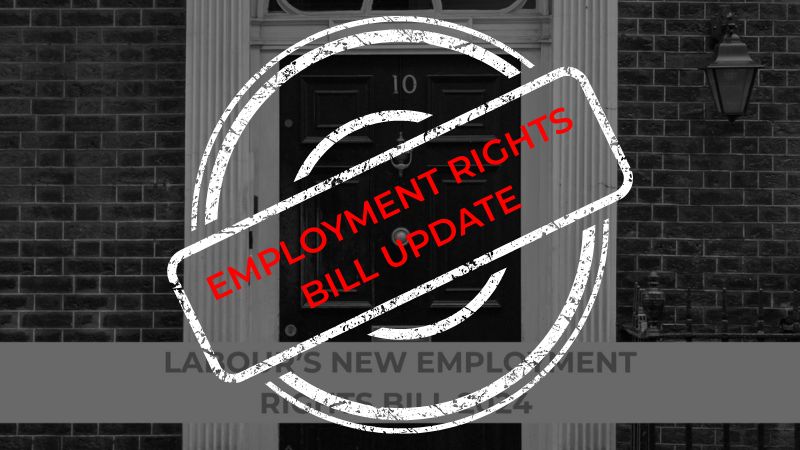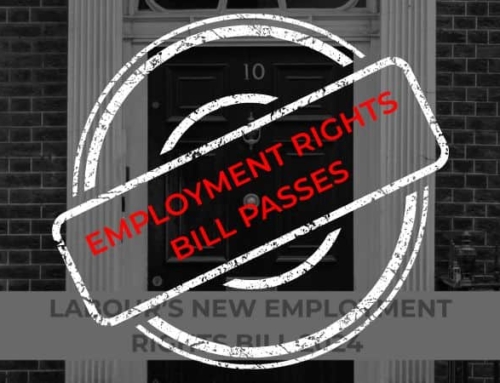At the back end of last year, the Labour government published their much-anticipated Employment Rights Bill (details of it can be found in our previous article here). The government has now published its roadmap, setting out a phased delivery plan for the upcoming reforms. As many of the changes will not be implemented until 2026, there is time for employers to prepare.
Here we have put together a summary of the key points and timeframes for implementation:
Immediate changes awaiting Royal Assent (expected October 2025)
Repeal of the Strikes (Minimum Service Levels) Act 2023
- During industrial action, there will no longer be set legally required staffing levels within the emergency/critical public services.
- Employers cannot use “work notices” to force individual workers to stop striking.
- There will be no penalties for not maintaining basic staffing during industrial action.
- MSL regulations for strikes can no longer be set by the government.
Trade Union Act 2016
- The ballot requirements for industrial action are to be changed to a simple majority of those who vote rather than 50% of union members (40% in local authorities).
- Strike notice rules simplified with reduced content requirements and notice periods for industrial ballot and strike action notices (14 days down to 10).
- Statutory rights for workers taking industrial action will be introduced to protect them from detriment or dismissal.
- Unions are no longer required to supervise pickets.
- There will be an automatic opt-in for union political funds, with the right to opt out.
Scheduled changes to come into force in April 2026
Collective Redundancies & Protective Award
- The collective redundancies obligations will include simultaneous redundancies in different locations. This means that all locations must be included when counting up to see if 20 employees are affected.
- The maximum protective award will increase to 180 days gross pay for each employee (previously 90 days).
Family Friendly Leave
- Parental Leave and Paternity Leave will become day-one employment rights.
- Paternity Leave may now be taken in addition to and following Shared Parental Leave.
- Further changes to Paternity and Parental Leave are being discussed in parliament.
Whistleblower Protections
- Sexual harassment will be a specific protected disclosure
Enforcement of employment matters
- The “Fair Work Agency” will be established to bring together existing enforcement powers and to enforce rights such as holiday pay.
- Minimum Service Levels legislation introduced by the previous government will be repealed.
Statutory Sick Pay
- From the first day of sickness absence Statutory Sick Pay (SSP) will be paid.
- There will no longer be a minimum earnings threshold for SSP eligibility.
- SSP will be set at the lower amount (currently £116.75) and a specified percentage of a worker’s weekly earnings.
Trade Union recognition and modernised digital/workplace balloting
- The process is to be simplified by making it easier for unions to gain statutory recognition, reducing reliance on postal-only ballots and automatic recognition in certain cases if the union has clear majority membership
- Ballots will be modernised by allowing secure electronic voting and possibly allowing on-site workplace voting.
Scheduled changes for October 2026
Protection from “Fire and Re-hire”
- If an employer dismisses an employee after they have tried to agree varied terms of contracts and the employee has refused, this will automatically be unfair dismissal.
- Automatic unfair dismissal will also apply if the employer replaces the employee with another person carrying out substantially the same duties if they are willing to accept the varied terms.
- To avoid unfair dismissal, employers will have to show that the required variation of the contract was to avoid financial difficulties that would affect the employer’s ability to carry on the business.
- Employers will not be allowed to dismiss employees with the sole purpose of imposing worse terms.
- Before any significant contractual changes are made, workers and unions must be consulted.
- The right to challenge forced changes through Employment Tribunals.
- Possible new penalties for employers
Fair Pay Agreement Negotiating Body
- The School Support Staff Negotiating Body is to be restored, and the Fair Pay Agreement Adult Social Care Negotiating Body will be created.
- These bodies have the power to negotiate the terms and conditions and pay of workers in their sector.
Tips
- Fair allocation of tips is already required under The Employment (Allocation of Tips) Act 2023
- After consulting a trade union or other work representative, a written policy and Code of Practice must be in place. This must be reviewed every three years with the same consultation process, and all workers must have access to the written policy and written summaries of each consultation.
Preventing sexual harassment - In addition to the 26th of October 2024 duty on employers to take ‘all reasonable steps’ to prevent sexual harassment of their employees, employers must carry out assessments of a specified description along with providing plans or policies. Employers must also take steps relating to how complaints and reports of sexual harassment are dealt with.
- Permitting harassment of an employee by a third party is prohibited. If an employer is deemed not to have taken all reasonable steps to prevent the harassment, they will be seen to have allowed the harassment to take place.
Trade Union Rights
- Workers will have a right to a statement of trade union rights at the same time as they are entitled to receive a section 1 statement of their terms of employment.
- Unions will have the right to request access to workplaces for the purposes of meeting, recruiting or organising workers or facilitating collective bargaining (not to organise strikes).
- Employers must take reasonable steps to facilitate access and can only refuse access if it will unreasonably interfere with the employer’s business.
- Disputes about access will be determined by the Central Arbitration Committee.
- Increased duties on employers to provide ‘such accommodation or facilities as are reasonable in the circumstances’ to undertake union activities.
Time Limits
- The limitation period for claims is due to increase from 3 months to 6 months for most tribunal claims, including claims for discrimination, unfair dismissal and unlawful deduction from wages.
- This change is not expected to apply to claims for breach of contract, which are pursued in the tribunal and will not affect claims for statutory redundancy pay which is already 6 months.
Legislation due for changes in 2027
In the summer of this year and into 2026, further consultations are expected to take place to discuss further planned changes for 2027. These changes include:
- Action plans to address gender pay gap and menopause
- Pregnant workers’ rights
- Bereavement leave
- Zero-hour contract protection
- Umbrella company regulation
- Day one unfair dismissal protection
What do employers need to do?
As initially expected, it is evident that there is going to be an increased requirement for employers to keep records of the reasoning behind their decisions and explanations given to employees when justifying decisions. The exact form of records, how long they will need to be kept, and the consequences of not providing them remain uncertain.
Going forward and we want to remind businesses to start getting organised and prepared for the upcoming changes to Employment Law. By this we mean:
- Review your policies, procedures and staff handbooks and make sure they are up to date
- Ensure your staff are reading them and you have records to evidence it
- Get used to following the processes and make sure that your managers understand them so you don’t get caught out
- Start working with your professional advisors to assess how the proposed changes will affect you and your business
How can Backhouse help?
For all the above, the Backhouse Solicitors team of employment specialists are here to help. Contact us today to book a free initial consultation with our friendly advisors and find out how to protect your business from unnecessary employment claims.
Tel: 01245 893400 | 01702 410880
Email: info@backhouse-solicitors.co.uk
Visit our Chelmsford office: 17 Duke Street, Chelmsford, Essex, CM1 1JU
Visit our Leigh-on-Sea office: 22-24 Elm Road, Leigh-on-Sea, Essex, SS9 1SN
Or send us a message through the Contact Us page on this website






